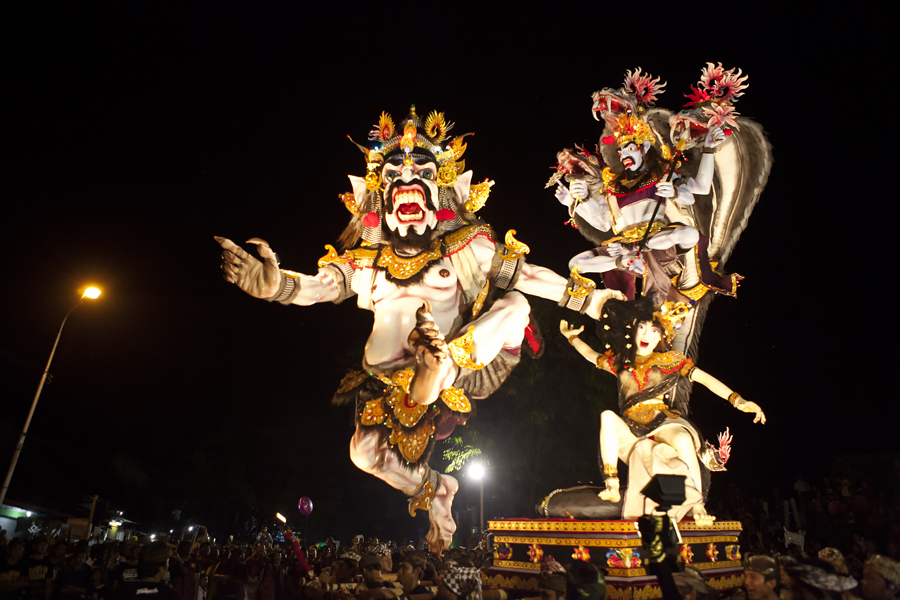Nyepi Day is one of the most significant cultural celebrations in Bali. It is the Balinese New Year, and the locals celebrate it with great enthusiasm and zeal. This festival is a unique experience for tourists and locals alike, as it is a day of complete silence and darkness. This article will examine Nyepi Day in Bali, the reasons behind the silence and darkness, and how the locals celebrate this special day.
The Significance of Nyepi Day in Balinese Culture and Tradition
Nyepi Day, also known as the Day of Silence, falls on the first day of the Saka lunar calendar. Usually in March. This day is a day of self-reflection, meditation, and self-restraint. Today, the Balinese people abstain from engaging in any form of physical activity, such as lighting fires, working, cooking, and even talking.
The silence and darkness create an atmosphere of introspection and contemplation. Allowing individuals to reflect on their past deeds and make a fresh start. On Ngerupuk Day, the Balinese celebrate with much excitement and noise, marking the day before Nyepi Day. This is when the Balinese people make loud noises, parade the streets with Ogoh-Ogoh (large demonic statues), and light up the night sky with fireworks.

The Silence and Darkness of Nyepi Day
The island of Bali is shrouded in silence and darkness, making Nyepi Day a unique experience. The Pecalang, the traditional Balinese security guards, enforce strict rules to achieve this. The traditional Balinese security guards enforce a strict rule to turn off all forms of light. Including electric lights, and prohibit the use of all vehicles. Even the airport in Bali is closed on this day, making it the only airport in the world that remains shut for an entire day.
The silence and darkness can be a bit daunting for tourists who are used to the hustle and bustle of the city. However, it is a time to experience a different side of Bali, where one can enjoy the peace and serenity of the island.
How the Locals Celebrate Nyepi Day
On Nyepi Day, the Balinese people observe four main rituals. The first is the Melasti ritual, which involves purifying sacred objects, such as statues and other religious artefacts. The second is the Bhuta Yajna ritual, which involves purifying the universe and eliminating negative forces. The third is the Nyepi ritual, which involves fasting and silence. The fourth and final ritual is the Ngembak Geni, a social gathering the day after Nyepi Day.
During Nyepi Day, the Balinese also spend time with their families, meditate, and perform various religious rituals. They usually stay indoors and refrain from engaging in any physical activity. The streets are empty, and the only sounds heard are those of nature.
Nyepi Day is a unique cultural celebration in Bali. It offers a glimpse into the spiritual and cultural richness of the Balinese people. The day of silence and darkness is a time for reflection, meditation, and self-restraint. Allowing individuals to contemplate their past deeds and make a fresh start. While the silence and darkness may be a bit intimidating for tourists, it is a time to experience a different side of Bali that is peaceful, serene, and spiritually enriching.
